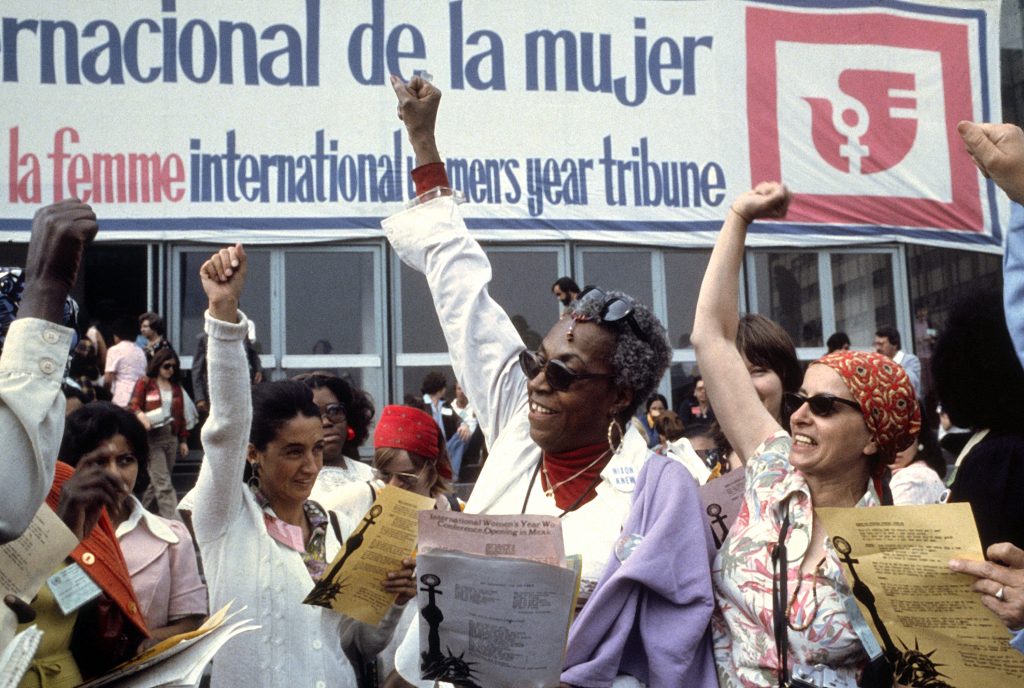 Feminist criticisms of conventional macroeconomic policies: Privatisation and corporate capture
Feminist criticisms of conventional macroeconomic policies: Privatisation and corporate capture
 Feminist alternatives to conventional macroeconomic policies
Feminist alternatives to conventional macroeconomic policies
Feminist criticisms of conventional macroeconomic policies
Decision making and transparency
“Women must be a part of decision-making in national budgeting processes, especially when urgent fiscal policies are made to respond to this COVID-19 crisis. The responses must be formulated with the aim to reduce inequalities, redistribute wealth and achieve human rights. For that, structural change is undoubtedly crucial.”
– APWLD, COVID-19 Highlights the Failure of Neoliberal Capitalism
The above quote from Asia Pacific Forum on Women, Law and Development (APWLD) clearly lays out that women’s participation in economic and political decision-making structures is necessary to ensure that their rights and needs are included in the analyses, solutions, and policies developed. This should cover all aspects of life, including in times of global and national crises of any kind. Who is included in the decision-making determines strongly the type of knowledge produced and policies developed.
Looking at the decision makers behind macroeconomic policies also gives us an idea about whose needs are prioritised in today’s economic structures. To a large extent, women have been left out of the decision-making positions of macroeconomic institutions, both at national and international levels. The formulation of the field of economics as ‘scientific’ and technical, and the centuries-old patriarchal structuring of society, exacerbates this marginalisation.
While it is promising to see more women at the highest positions of governments, international financial institutions, and some national macroeconomic institutions, their contribution to gender equality is only possible if they are willing to challenge and restructure the current macroeconomic systems and structures that exacerbate inequalities within and among countries. Furthermore, although more women are appointed to some of the most influential economic institutions at the international level, these developments are far from challenging the domination of the Global North in these structures. Without a critical perspective and dissolution of structural barriers, adding women leaders is not an end-all solution to the inequalities caused by the current neoliberal economic order. Furthermore, for this challenge and restructuring to be effective and long lasting, a larger proportion of the decision makers should consist of women in all their diversity, with a fair representation of women from the Global South. This is so that they will be able to restructure the neoliberal, patriarchal systems they live in.
A common argument for increasing women’s participation in the economy (including decision-making processes and institutions) is that women’s inclusion is beneficial for the economy, including the macroeconomic level.1A discussion of these benefits, co-authored by previous IMF managing director Christine Lagarde, can be accessed at: https://voxeu.org/article/macroeconomic-benefits-gender-diversity In this narrative, women are seen as underutilised ‘resources’ for the economy. This utilitarian narrative and approach not only overlooks the immense amount of care work that women undertake, but also sidelines the human rights dimensions of economic inclusion, along with the the right of every person to work (not because they are seen as resources, but because they are entitled as human beings to economic inclusion) and also the obligations of states under human rights standards. Women’s economic inclusion and empowerment should be discussed as an exercise of women’s human rights, rather than as a means to increase efficiency, productivity, or GDP.
In order to ensure transparent and democratic decision making, all civil society organisations and rights groups focusing on the economy and labour should also be a part of the decision-making mechanisms. Currently, in many countries only certain interest groups are consulted when macroeconomic policies are determined. Disadvantaged and marginalised groups are rarely at the table when economic decisions are made, whether at macroeconomic or microeconomic level. This is also related to how much information is available and accessible about the macroeconomic decisions made by international and national macroeconomic institutions. Information that is not understandable or accessible by different groups within society is a structural hindrance to the participation of these groups, whether in macroeconomic decision-making or advocacy directed at these structures.
However, we should never forget that just being at the table is not equal to meaningful participation, or effective enough to change the current systems of oppression. Real change will not be possible if women in these positions continue to just participate in or perpetuate the same systems, structures, and policies that marginalise and exploit people across the world, then. What is needed is equal participation with transformative power.
 Feminist criticisms of conventional macroeconomic policies: Privatisation and corporate capture
Feminist criticisms of conventional macroeconomic policies: Privatisation and corporate capture
 Feminist alternatives to conventional macroeconomic policies
Feminist alternatives to conventional macroeconomic policies
Footnotes
- 1A discussion of these benefits, co-authored by previous IMF managing director Christine Lagarde, can be accessed at: https://voxeu.org/article/macroeconomic-benefits-gender-diversity


